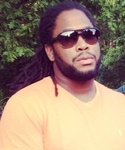Boston Magazine this week profiled Greg Diatchenko, 50, who was found guilty of murder at 17.
Wearing a crisply pressed blue button-down and jeans, Greg Diatchenko could be a suburban dad arriving for a parent-teacher conference. The 50-year-old murderer walks into a sunny conference room at the medium-security state prison in Norfolk, his cheeks freshly shaven, his glasses silver, his eyes blue-green. It’s a warm day in April, and he awkwardly scans to the scrum of people waiting there for him — the prison’s press director, a correctional officer, his lawyer, me — to figure out where to sit. When he shakes my hand, his palms are callused, his fingernails trimmed to the quick. I know he’s nervous, because his lawyer told me. But he just seems thoughtful, reflective, sincere.
Diatchenko’s lawyer has serious reservations about his speaking with a journalist. But Diatchenko hopes his story can help the other 62 Massachusetts inmates who, like him, were sentenced to life without the possibility of parole for crimes they committed when they were still too young to vote. His lawyer sits in on our 90-minute conversation, occasionally shutting down certain avenues of questioning, and Diatchenko heeds his advice not to talk about the brutal crime that landed him in here.
Read the full story here and learn more about Massachusetts’ new law making juveniles convicted of first-degree murder in Massachusetts eligible for parole after serving 20 to 30 years of their sentence in this article from The Boston Globe.






